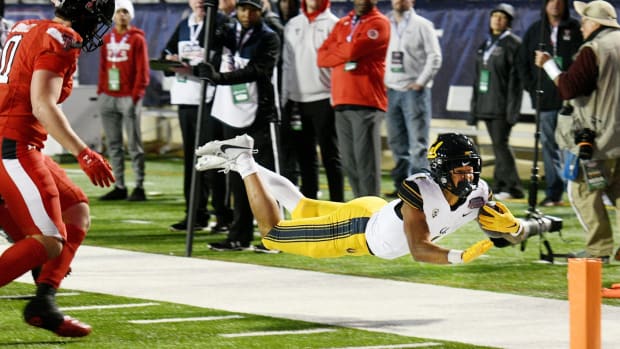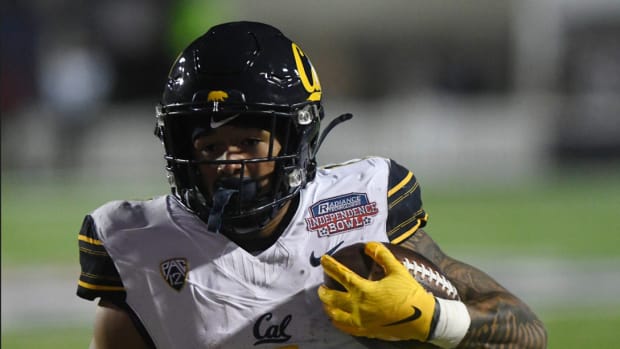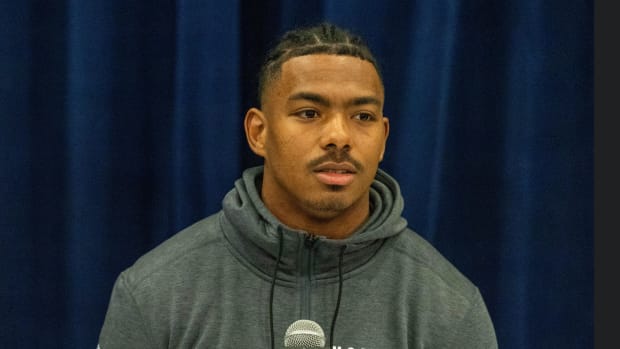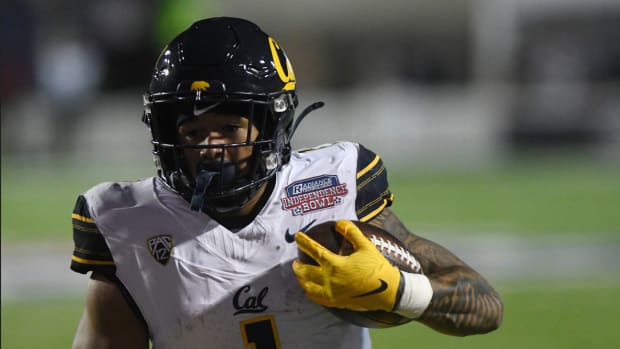College Football: Pac-12, Big Ten and ACC Announce Plans for their Alliance
The Pac-12, Big Ten and ACC, in an effort to bring stability in a time of “college athletics turmoil,” announced an alliance on Tuesday that also will attempt to create scheduling collaboration focusing on football and men’s and women’s basketball.
The three leagues, which include 41 schools, are not merging but will tackle the wide range of issues that have bubbled to the surface, including conference realignments and a proposed expansion of the College Football Playoff format.
The formation of the alliance comes in the wake of Texas and Oklahoma announcing last month they intend to leave the Big 12 Conference and join the SEC.
Commissioners George Kliavkoff of the Pac-12, Kevin Warren of the Big Ten and Jim Phillips of the ACC — who talked with reporters during a 47-minute webinar — have been meeting for the past month to discuss the alliance between universities in three conferences that believe they share values, including an emphasis on academics.
Warren called this “a year of seismic shifts” in college sports but Kliavkoff argued that financial considerations were not the driving force in the formation of the alliance.
“There may be residual benefits from this alliance related to increased revenue opportunities,” Kliavkoff said. “But that wasn’t the focus of why we did the alliance. We did the alliance to protect the collegiate model, to work together on these important issues and to create unique new opportunities for our next generation of student-athletes and our fans and alumni who want to see these great games that we’ll be able to create.”
Phillips of the ACC, however, added, “We understand the financial piece and it usually is the driver of a lot of decisions. This was a time we felt we had a responsibility to stabilize a volatile environment, to focus in on the things structurally that we have to do if we want to see college athletics to only survive but excel.”
*** Kliavkoff tells ESPN the Pac-12 will decide this week whether or not to expand.
The range of issues facing college sports includes realignment, the Alston Supreme Court decision that led to the NCAA relaxing its Name, Image and Likeness restrictions, gender equity, the transfer portal, social justice, physical and mental health and well being, and diversity and inclusion. Phillips suggested that saving college sports is a fight worth waging.
“The collegiate model, though imperfect, is a place that allows access and affordability to a group of young people that may have never accessed higher education or ever had the chance to pay to go to college,” he said.
Curiously, the three conferences did not formalize their alliance with any signed paperwork or contract. Quizzed twice about that by reporters, they insisted it is not necessary.
“It’s an agreement between three gentlemen,” Kliavkoff said.
Here is a video recording of Tuesday's webinar:
No specifics were provided in terms of a timetable for beginning to implement scheduling. “This is the beginning of a very long journey of collaboration,” said Kliavkoff, who took over as Pac-12 commissioner in July.
Warren stressed that no existing scheduling contracts would be sacrificed, and that media rights deals will be taken into account as scheduling changes are considered.
The Pac-12 and Big Ten both play nine conference football games — one more than most leagues — so trimming that schedule to accommodate a high-profile matchup of teams from the Pac-12, Big Ten and ACC will be discussed.
Kliavkoff noted that the Pac-12’s current TV contract calling for nine conference games runs three more years. But, he suggested perhaps there could be wiggle room on that.
“To move to fewer games sooner than three years we’d need to have a partnership with ESPN and Fox to do that, although I think there’s a compelling argument that the games we could replace those with, if they were in the alliance, would be very compelling and worth making that move sooner,” he said.
No doubt that college fans across the country would be intrigued by Ohio State vs. USC or Oregon vs. Clemson.
But how much coast-to-coast interest would there be in Washington State facing Rutgers or Oregon State taking on Wake Forest? And where would Cal fit into the pecking order in terms of a football matchup?
There is still a lot to unravel on that front, and Cal’s Jim Knowlton is among 11 athletic directors from the three conferences serving on a committee that will explore the scheduling component and strategy. Former Cal AD Sandy Barbour, now at Penn State in the Big Ten, also is on that committee.
*** Here is a link to the Pac-12 news release on the alliance.
Cover photo of Pac-12 commissioner George Kliavkoff
Follow Jeff Faraudo of Cal Sports Report on Twitter: @jefffaraudo






